Introduction
Markel Corporation, often dubbed a “mini Berkshire Hathaway,” presents an exciting investment opportunity, especially in today’s volatile economic environment. Founded in 1930, Markel has steadily grown into a global leader in insurance and reinsurance while diversifying its portfolio through its subsidiary, Markel Ventures, which invests in various industries.
As we analyze the company’s financial performance, growth prospects, and valuation, the parallels to Berkshire Hathaway become clearer. But what makes Markel truly stand out is its unique business model that combines robust insurance operations with strategic long-term investments, all while appearing undervalued by the market.
For those looking to embark on their investing journey, our affiliate link for Trade Republic offers a €30 bonus in shares as a gift when you complete three purchase transactions in ten days: Trade Republic.
Financial Performance
Markel’s revenues have remained stable over the years, thanks to its strong presence in both the insurance and investment sectors. The company’s operating segments include:
- Insurance: 55.9% of revenue
- Reinsurance: 9.1% of revenue
- Markel Ventures: 40.7% of revenue
The company has built a solid financial foundation through its ability to leverage its insurance float — the capital collected from insurance premiums but not yet paid out for claims — by investing it in equities and other long-term investments.
Investors can leverage GuruFocus to delve deeper into these financial metrics and identify value opportunities.
Key Financial Metrics:
- Return on Equity (ROE): 14%, well above the sector average of 6%.
- Free Cash Flow (FCF): Increased by an average of 21% over the past five years, highlighting the company’s ability to convert operations into liquidity.
- Combined Ratio: Markel consistently maintains a strong combined ratio below 100%, indicating profitability in its insurance underwriting.
Profitability and Valuation
Markel stands out for its profitability, especially when compared to other insurers. The company’s ability to outperform the S&P 500 over a 10-year period, delivering an annualized return of 13.2% versus the S&P 500’s 12.5%, showcases its strength.
Markel’s price-to-earnings ratio (P/E) of 10.7x is significantly lower than the industry average of 16x, making it appear undervalued by the market. Additionally, the price-to-book (P/B) ratio suggests further underappreciation by investors. The stock’s intrinsic value, calculated using the discounted cash flow (DCF) method, estimates that the share price should be around $1,605.97, compared to its current price of $1,301.30, representing a 19% potential upside.
Debt and Leverage
While Markel has a healthy interest coverage ratio, indicating it can comfortably meet its debt obligations, investors should monitor the company’s Debt-to-Income (DTI) ratio. A DTI ratio above 4 is generally recommended, and though Markel is within reasonable limits, keeping an eye on this metric is important as the company continues to expand.
Growth Prospects
Markel’s investment strategy, particularly its significant exposure to equities, sets it apart from traditional insurance companies that typically invest more conservatively in bonds. The company’s focus on investing in high-quality businesses, such as Amazon and Deere, provides it with substantial long-term growth potential.
Additionally, Markel Ventures, which accounts for a sizable portion of its revenue, has diversified the company’s risk by investing in various industries outside of insurance. This business model not only reduces the company’s reliance on insurance revenues but also provides additional growth avenues.
Technical Analysis
Markel Corporation (MKL) is showing steady movement in the market, reflected in its Relative Strength Index (RSI), which is currently at 51.36. This suggests that the stock is neither overbought nor oversold, indicating neutral momentum. Investors watching the stock should keep an eye on the 50-day moving average of $1,567.63 and the 200-day moving average of $1,507.46. With the current price sitting above its 200-day moving average, Markel is exhibiting a potential upward trend.
In terms of trading volume, Markel has an average daily volume over the past 20 days of around 27,422 shares. This lower trading volume indicates moderate investor interest but also highlights the stock’s relative stability.
On the technical front, the stock is approaching a support level around $1,507, with a resistance level near $1,600. This range suggests the stock is in consolidation, with potential for a breakout depending on broader market conditions and company performance.
Markel’s performance in these areas indicates a steady, calculated upward trajectory, making it an interesting prospect for long-term investors.
Potential Catalysts
Several factors could drive Markel’s stock higher in the near future:
- Continued Strong Performance in Insurance: Markel’s insurance and reinsurance segments are performing well, with a consistently low combined ratio indicating profitable underwriting.
- Growth in Markel Ventures: The company’s ability to identify and invest in businesses across various sectors has provided it with a significant growth engine.
- Undervalued Stock: With a low P/E ratio and a substantial upside potential based on its intrinsic value, Markel’s stock is well-positioned for growth as more investors recognize its potential.
Leadership and Strategic Direction
CEO Tom Gayner, who took the reins less than a year ago, has already demonstrated his ability to lead the company with a strong focus on value creation. Markel’s management team, with nearly five years of stability, continues to execute a long-term growth strategy, much like Berkshire Hathaway under Warren Buffett’s leadership.
Additionally, the company has been repurchasing its own shares, reducing the number of common shares outstanding since 2018. This is a positive signal, as it demonstrates management’s confidence in the company’s long-term prospects and enhances shareholder value.
Impact of Macroeconomic Factors
Insurance companies tend to outperform during periods of economic uncertainty, and Markel is no exception. The company benefits from rising interest rates as it reinvests in higher-yielding assets. Furthermore, its long-term equity investments are not overly exposed to high-growth companies that could be negatively affected by rising rates.
Total Addressable Market (TAM)
The insurance market remains vast, and Markel has room to grow, especially as it expands its reinsurance and Markel Ventures segments. The company’s diversification across industries through Markel Ventures also provides it with exposure to a broader market, increasing its total addressable market.
Market Sentiment and Engagement on Yahoo Finance
Market sentiment towards Markel has been increasingly positive as analysts recognize its potential as an undervalued insurance company with a unique business model. Discussions on platforms like Yahoo Finance highlight the company’s strong financials, management team, and growth potential.
Conclusions, Target Price Objectives, and Stop Losses
Markel Corporation presents a compelling investment opportunity for long-term investors. Its strong financial performance, unique business model, and undervaluation by the market make it an attractive option. With a target price of $1,670, representing a 19% upside from the current stock price, investors may want to consider adding Markel to their portfolios.
A stop loss around the $1,250 mark could help mitigate downside risk while still allowing for potential upside as the stock approaches its intrinsic value.
For more insights into analyzing value and growth stocks poised for sustainable growth, consider this expert guide. It provides valuable strategies for identifying high-potential value and growth stocks.
We also have other highly attractive stocks in our portfolios. To explore these opportunities, visit our investment portfolios.
This analysis serves as information only and should not be interpreted as investment advice. Conduct your own research or consult with a financial advisor before making investment decisions.


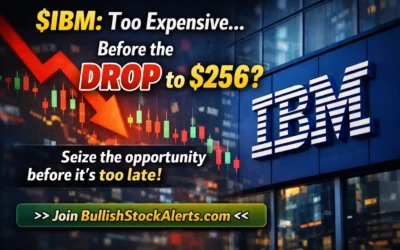
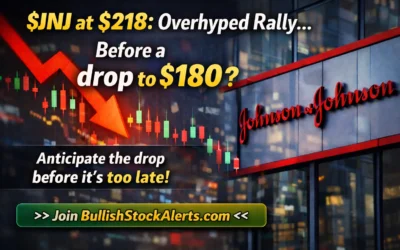
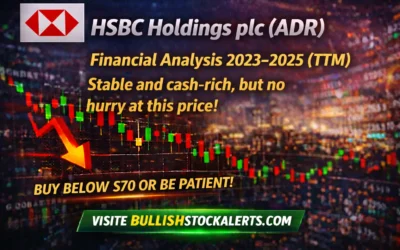
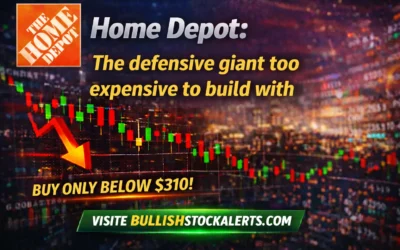
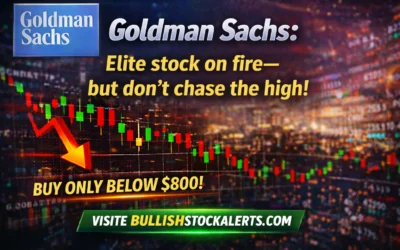
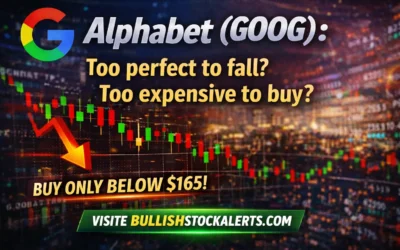

0 Comments